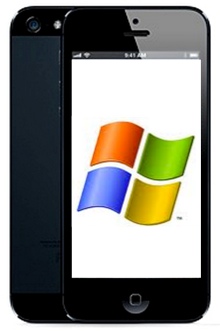Why iOS won't become Apple's 'Windows XP'


Apple is selling millions of iOS devices every quarter, but some worry that the lack of innovation, combined with the fact that people find the operating system to be 'good enough' could turn Apple's mobile operating system into the company's own ' Windows XP.'
First, some background on what is meant by 'Windows XP' in this context. Microsoft released Windows XP back in October of 2001, and it remained the most widely used—and, most loved—operating system up until Windows 7 finally overtook it in August 2012. Windows XP held on to the reign of power for over a decade because Windows Vista didn't offer users enough of an incentive to upgrade. Not only did this 'upgrade ennui' affect Microsoft, but it also helped to put a damper on PC sales and the entire PC industry.
David Sobotta of ReadWrite thinks that iOS is on the way to suffering the same problem.
"To keep the iOS train moving and churning out profits," writes Sobotta, "Apple needs to innovate - but not so much that it scares away the legions of happy iPhone and iPad users."
He goes on to point out how "to turn the tide, iOS may need to be re-invented," but that this "is not easy to pull off without killing the goose that lays the golden eggs."
This may be the case, but I don't think that there's much danger of iOS becoming Apple's 'Windows XP.' Here's why:
- Apple has been innovating and adding features to iOS with each iteration. Users don't seem scared of change.
- iDevice owners are enthusiastic about new iOS updates, and each release shows rapid adoption. As opposed to Windows upgrades, people seem to enjoy upgrading iOS devices.
- iOS is a free upgrade, Windows isn't. People like free.
- Apple has maintained excellent backward compatibility for apps through the life of iOS. What people dislike about upgrading operating systems the way it breaks apps. Apple has, to the most part, made iOS upgrades as 'low drag' as possible. Apple recognises that iOS—and iDevices—are a platform for apps.
- iDevices are continuing to fly off the shelves almost as fast as Apple can make them. Consumers seem oblivious to the whole "iOS may need to be re-invented" debate.
Bottom line, if Apple keeps iOS updates free, maintains app compatibility, and keeps upgrades simple, I don't see there being any risk of iOS becoming Apple's 'Windows XP.'